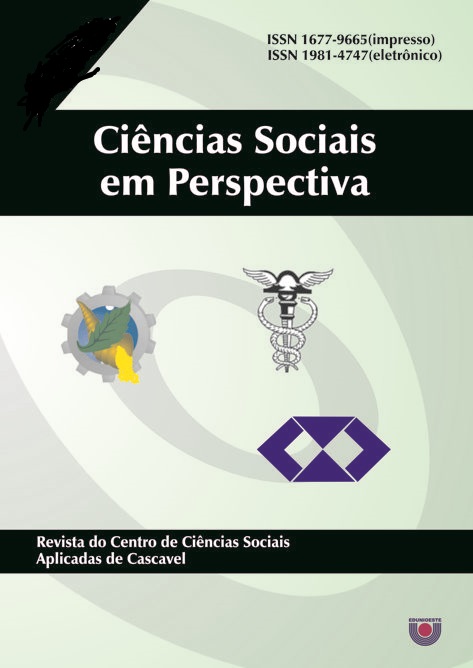FEMALE LABOR FORCE IN THE BRAZILIAN LABOR MARKET: WAGE DISCRIMINATION BY GENDER
DOI:
https://doi.org/10.48075/revistacsp.v14i26.10860Keywords:
Mercado de trabalho feminino. Discriminação salarial. GêneroAbstract
For decades women have suffered with gender discrimination in the labor market, preventing them from fully exercising their role as citizens beyond the family environment and harming its evolution and rise in the world of labor. From the twentieth century, however, they began to gain traction in this market, assuming a new profile as generating family income. From this perspective, this study aims to analyze the participation of women in the labor market and wage differentials by gender in Brazil, from the PNAD, IBGE, 2002 and 2011. From this perspective, this study aims to analyze the participation of women in the labor market and wage differentials by gender in Brazil, from the PNAD, IBGE, 2002 and 2011. Methodological procedure consisted in estimating the equation wage (Mincer 1974), applying the correction of selection bias in the sample (HECKMAN, 1979) and Oaxaca decompose model (OAXACA, 1973). The results show that although women are more educated than men there are wage differentials which are independent of the production factors, signal discrimination in the Brazilian labor market, both in 2002 and in 2011. Two aspects can be highlighted, one negative and another positive in this period: there was an increase in gender discrimination, however the increased participation of women in the labor market.
Downloads
Downloads
Published
How to Cite
Issue
Section
License

This work is licensed under a Creative Commons Attribution-NonCommercial-ShareAlike 4.0 International License.
Aviso de Direito Autoral Creative Commons
Política para Periódicos de Acesso Livre
Autores que publicam nesta revista concordam com os seguintes termos:
1. Autores mantém os direitos autorais e concedem à revista o direito de primeira publicação, com o trabalho simultaneamente licenciado sob a Licença Creative Commons Attribution que permite o compartilhamento do trabalho com reconhecimento da autoria e publicação inicial nesta revista.2. Autores têm autorização para assumir contratos adicionais separadamente, para distribuição não-exclusiva da versão do trabalho publicada nesta revista (ex.: publicar em repositório institucional ou como capítulo de livro), com reconhecimento de autoria e publicação inicial nesta revista.
3. Autores têm permissão e são estimulados a publicar e distribuir seu trabalho online (ex.: em repositórios institucionais ou na sua página pessoal) a qualquer ponto antes ou durante o processo editorial, já que isso pode gerar alterações produtivas, bem como aumentar o impacto e a citação do trabalho publicado (Veja O Efeito do Acesso Livre).
Licença Creative Commons
Esta obra está licenciada com uma Licença Creative Commons Atribuição-NãoComercial-CompartilhaIgual 4.0 Internacional, o que permite compartilhar, copiar, distribuir, exibir, reproduzir, a totalidade ou partes desde que não tenha objetivo comercial e sejam citados os autores e a fonte.





